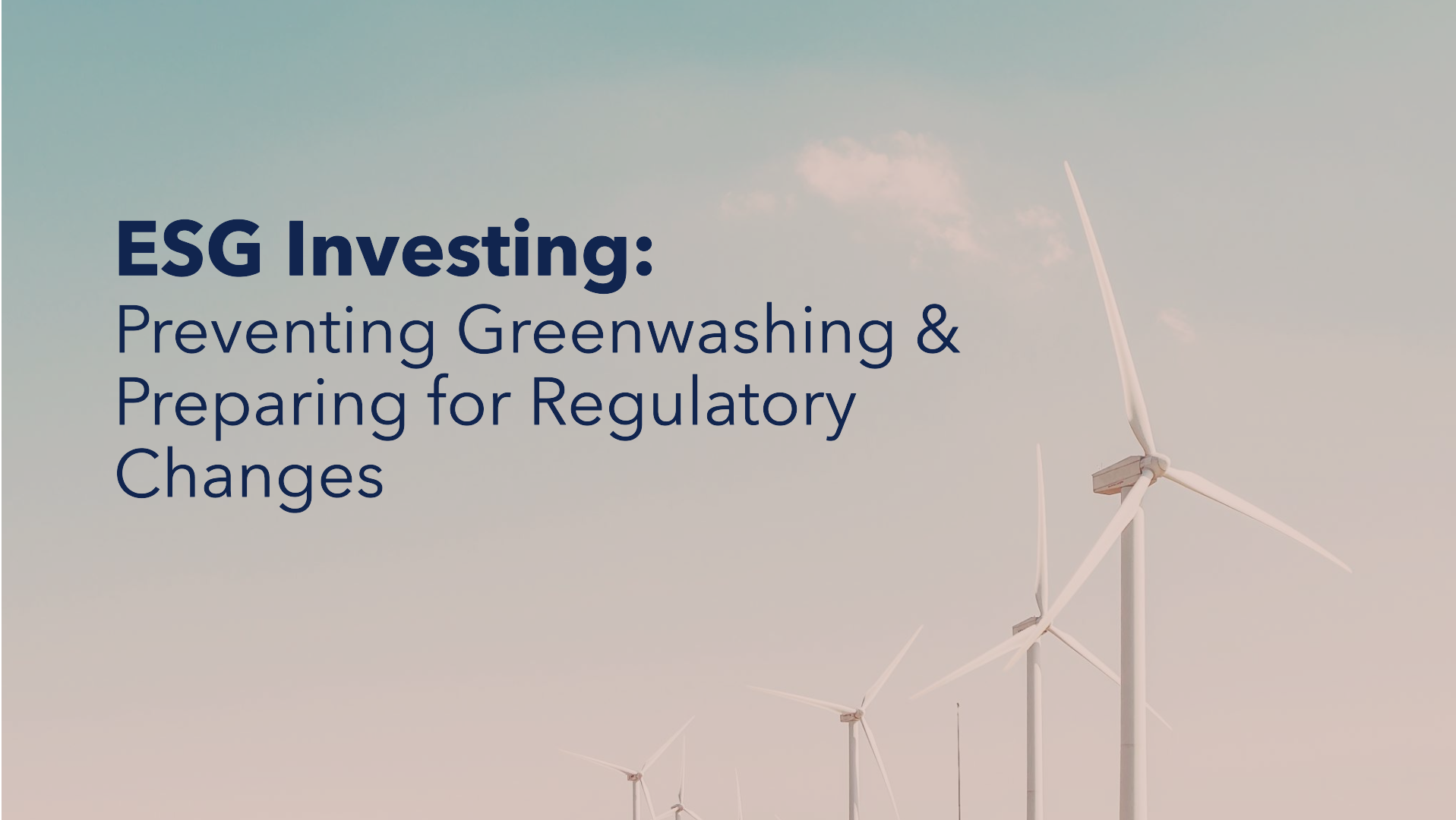As the regulatory landscape for financial services continues to evolve, investment companies are finding themselves at a crossroads.
Unpacking the Impact: The Challenges of Proposed Regulations for Investment Companies
ESG Investing: Preventing Greenwashing & Preparing for Regulatory Changes
ESG investing focuses on incorporating environmental, social, and governance principles into a fund’s investment strategy. These portfolios often consist of investments in assets that promote green energy, climate preservation, Diversity, Equity, and Inclusion initiatives, and equal access to opportunities.
The Rise of Artificial Intelligence in Investment Strategies and the Role of Compliance
The PRC Risk Transparency Act & its implications on U.S. Compliance Programs
Amid escalating global tensions and geopolitical uncertainties, numerous bills are being researched and proposed to minimize the impact to United States financial markets.
SEC v. Jarkesy: Navigating Changes to the Regulatory Landscape
SEC v. Jarkesy: Navigating Changes to the Regulatory Landscape
Credit Suisse AT1 Write-off Leads to Billions in Losses for Creditors
Credit Suisse AT1 Write-off Leads to Billions in Losses for Creditors – Is it Time to Review Your OMS Compliance Rule Library?
The recent turmoil in the US financial markets and the collapse of Silicon Valley Bank and other regional banks have caused significant volatility. Internationally, UBS's acquisition of Credit Suisse aims to restore confidence in the Swiss banking system.
How to Build a Culture of Compliance
How to Build a Culture of Compliance
When investment professionals use their considerable expertise to perpetuate a fraud, they usually rely on that same expertise to cover it up. The more complex the financial instrument or approach, the better, since most people are uncomfortable questioning things they may not understand.
Investing in Your Compliance Culture
For nearly four years between April 2017 and October 2021, Wells Fargo Advisors went unnoticed in a financially threatening scandal involving its failure to file 34 suspicious activity reports. Risky wire transfers facilitating "money laundering, terrorist financing, and other illegal money transactions to and from foreign countries"1 were swept under the rug due to the faulty implementation of Wells Fargo's 2019 update to its internal anti-money laundering, or AML, monitoring and alert system.
The August 19, 2022 compliance date of rule 18f-4 of the Investment Company Act of 1940 is approaching. The new rule is described by the Securities and Exchange Commission as an effort “to provide an updated, comprehensive approach to the regulation of funds’ “use of derivatives and certain other transactions”. It imposes derivatives management duties on mutual funds (other than money market funds), exchange traded funds, registered closed-end funds, and business development companies. An example of a necessary step in adhering to the new policy is a written derivatives risk management program, relying upon stress testing, led by a Derivatives Risk Manager. In addition, there are Value at Risk (VaR) measurements of leverage risk and Board derivatives oversight and reporting.









